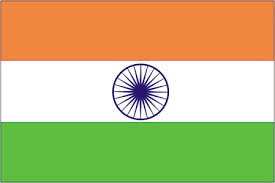Statement by Ms. Rachita Bhandari, Counsellor (Disarmament), PMI to CD at the informal meeting of the Working Group I on Nuclear Disarmament during the 2019 Session of the UN Disarmament Commission in New York on April 16, 2019
Madam Chair,
On behalf of the delegation of India, I would like to thank you for your diligent efforts in taking forward our discussions under the Disarmament Commission’s Working Group I on Nuclear Disarmament. I assure you of our cooperation as you continue to ably guide the Group’s work this year as well.
The Commission plays a distinct role within the existing disarmament machinery as the main deliberative body within the UN on disarmament issues. The Commission has made significant achievements in its past, having successfully adopted several guidelines and recommendations, including the recommendations on ‘Practical Confidence Building Measures in the field of Conventional Weapons’ as recently as the year before last. Given that this achievement came after a long hiatus of 18 years, and contributed significantly to a restoration of confidence in the Commission and the disarmament machinery as such, it behoves us all to sustain this momentum in our work and strive collectively towards a successful outcome in this Working Group as well.
In 2018, the Conference on Disarmament was able to convene substantive discussions in its Subsidiary bodies on both items of the Commission’s Agenda - Nuclear Disarmament and Outer Space. It is unfortunate indeed that the Conference has not yet agreed to a decision to reinstate the Subsidiary bodies this year.
The prevailing international security environment remains challenging, thereby rendering a robust deliberation on the agenda item of nuclear disarmament imperative. A renewed commitment to multilateralism and genuine dialogue with the aim of achieving convergences in the vastly divergent positions would go a long way in achieving the objectives set out by the first Special Session on Disarmament.
For its part, India has been advocating the need for meaningful dialogue among all States possessing nuclear weapons to build trust and confidence and to reduce the salience of nuclear weapons in security doctrines. This idea was also emphasised by the UNSG in his Disarmament Agenda launched last year.
India remains committed to universal, non-discriminatory and verifiable nuclear disarmament and to multilateralism in pursuit of that goal. We believe that this goal can be achieved through a step-by-step process underwritten by a universal commitment and an agreed global and non-discriminatory multilateral framework.
India supports the proposal put forward by NAM for the Conference on Disarmament to commence negotiations on a Comprehensive Nuclear Weapons Convention. Without prejudice to the priority attached to nuclear disarmament, India also supports the commencement of negotiations of an FMCT in the Conference on the basis of the agreed mandate.
Madam Chair,
In 2007, India presented a Working Paper on Nuclear Disarmament to the Conference on Disarmament, as contained in CD/1816, which made a number of proposals, which continue to remain relevant to our work today and include:
- Reaffirmation of the unequivocal commitment of all States possessing nuclear weapons to the goal of complete elimination of nuclear weapons;
- Reduction of the salience of nuclear weapons in the security doctrines;
- Taking into account the global reach and menace of nuclear weapons, adoption of measures by States possessing nuclear weapons to reduce nuclear danger, including the risks of accidental nuclear war, de-alerting of nuclear-weapons to prevent unintentional and accidental use of nuclear weapons;
- Negotiation of a global agreement among States possessing nuclear weapons on ‘no-first-use’ of nuclear-weapons;
- Negotiation of a universal and legally-binding agreement on non-use of nuclear weapons against non-nuclear weapon States;
- Negotiation in the Conference on Disarmament of a Convention on the complete prohibition of the use or threat of use of nuclear weapons;
- Negotiation in the Conference on Disarmament of a Nuclear Weapons Convention prohibiting the development, production, stockpiling and use of nuclear weapons and on their destruction, leading to the global, non-discriminatory and verifiable elimination of nuclear weapons with a specified timeframe.
India remains willing to play a constructive and supportive role in implementing all the above-mentioned proposals. In that spirit, Madam Chair, we look forward to an in-depth exchange of views on all aspects of the agenda item on nuclear disarmament. You can rest assured of our full support and cooperation in this regard.
Thank you, Madam Chair.












